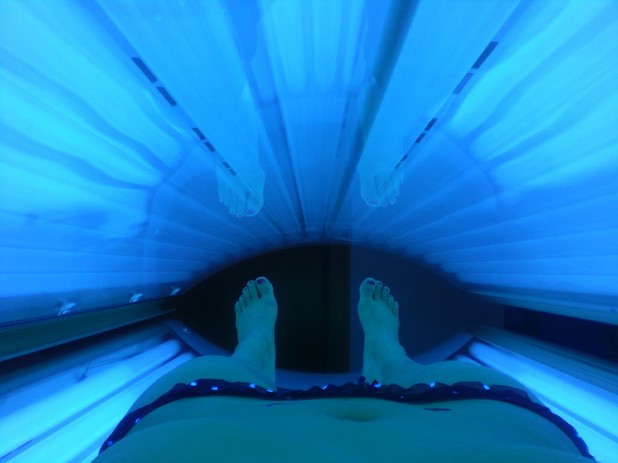- Story Highlights
-
- Indoor: Tanning linked to addiction
A Third of Indoor Tanners Are Addicted to the Sunbed
Researchers say that as many as 1 in 3 young people who use indoor tanning facilities could be addicted to tanning; and that those that show addictive symptoms are also far more likely to display symptoms of substance abuse and anxiety.
Indoor tanning is bad for you. It increases the risks of the lethal melanoma cancer. Nevertheless, millions use indoor tanning as a way to get that bronzed look, and according to researchers, a significant number of these indoor tanners may be addicted to that fake sunshine.
Researchers at Memorial Sloan-Kettering Cancer Center in New York looked closely at the behaviors of 229 college students who admitted to using indoor tanning facilities. These students were given a tanning-modified version of a questionnaire that is used to predict substance abuse (the CAGE Screening Test) and were also assessed for addiction based on the APA’s DSM-IV addiction criteria.
The numbers:
- 39% of these indoor tanning students met the CAGE criteria for tanning addiction and 30% met the DSM-IV criteria for addiction
- Students that were considered addicted to tanning were far more likely to report greater anxiety and substance abuse.
Amongst students who met the criteria for tanning addiction:
- 78% admitted having tried and failed to cut down on tanning
- 78% admitted to feeling guilty about their tanning
- 26% admitted wanting to tan after getting out of bed in the morning
- Roughly 25% said that tanning had caused them to miss important scheduled activities
The researchers suggest that a subset of people may be using tanning for more than just appearance change, but also as a way to relax and to regulate mood, just as drugs and alcohol are sometimes used. Lead researcher Catherine Mosher commented, saying, "There might be a similar mechanism underlying substance-use behavior and tanning behavior. Both may be ways of coping with emotions. There may be similar processes in the brain involved that need to be uncovered."
While the notion of tanning addiction may sound far-fetched to the layperson, experts in the field aren’t surprised by the results of Mosher’s study.
University of Texas Medical Branch at Galveston dermatology professor, Dr. Richard Wagner Jr. found similar rates of addiction in beach-going tanners in a study published in 2005. He commented on this latest research by explaining that the concept of addiction helps to explain why people continue to engage in an activity that is known to be harmful, saying, "A lot of times, these people don't really want to hear that tanning may be a problem. I hear this a lot from my skin-cancer patients. They are sort of in denial."
Because of the link between addictive behaviors and tanning, Mosher recommends the use of more intensive techniques, such as motivational interviewing, to help those who tan at unhealthy levels. Looking forward, she says, "Further research should evaluate the usefulness of incorporating a brief anxiety and depression screening for individuals who tan indoors. Patients with anxiety or depression could be referred to mental health professionals for diagnosis and treatment."
The full study results can be read in the journal, Archives of Dermatology


